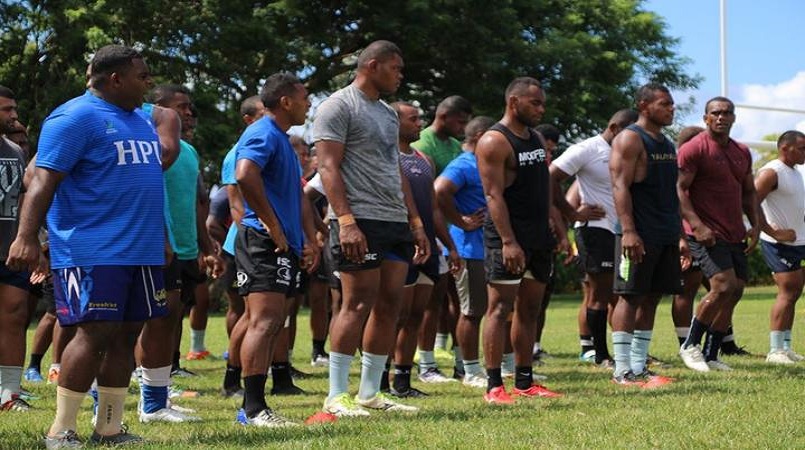
Global Rapid Rugby (GRR) organisers remain confident the tournament will go ahead as planned next month despite concerns over the coronavirus outbreak in China.
The Fijian Latui are scheduled to host their season-opener match in Suva against the Shanghai-based China Lions on 14 March but the Fiji government has banned non-citizens who have been in mainland China within 14 days of their intended travel.
Rapid Rugby CEO Mark Evans is positive games will go ahead, with alternative plans expected to be announced this week.
"Everyone knows these are extraordinary and unusual circumstances. This doesn't happen every day or every year even and we've all got to work collaboratively to ensure that if at all possible, that things are disrupted as little as possible but we need to be adaptable," he said.
"The recent events have probably hit those teams particularly Shanghai and South China far more than others but I think we're pretty confident that we can keep the show on the road."
The brainchild of billionaire Western Force owner Andrew Forrest, Global Rapid Rugby originally intended to launch in 2019 with eight teams but was postponed at the last minute.
A series of exhibition matches were instead held throughout Asia, the Pacific region and Australasia, with a streamlined six-team competition with a prize pool of A$1 million finally rolled out for 2020.
Mark Evans joined Global Rapid Rugby in October last year following a career which included 11 years as CEO of English rugby club Harlequins and two years in charge of the Melbourne Storm NRL club.
The Englishman, who has also worked with organisations such as European Rugby, Rugby League World Cup 2021 and the Netball Super League, believes the future of Global Rapid Rugby is bright.
"We're feeling very positive. It's a big step setting up a new competition in any sport in any part of the world but when it's involves as many venues and countries in this time zone then it comes with it's own challenges but it's very exciting."
"We are working in an area where there are some string pockets of the game. I think at the moment it's probably more important to get the teams and the venues up and running and operating well."
"We are still confident and determined that the concept of an Asia path tournament is sound and has got legs and in the long run has got some commercial value."
While teams await an announcement Latui coach Senirusi Seruvakula is keeping his side accountable, making sure they are match-fit and ready for kick-off.
Seruvakula named a 31-man squad to play in the tournament earlier this week with expectations that they will host their season-opener match at home next month.
"The main thing is looking at their conditioning [and] their fitness so that they understand that the Global Rapid Rugby is very fast rugby but we need to be fit to play in this competition."
"Next week we'll be going down to Nadi camping from Tuesday to Friday so that will be the same [training schedule] for three weeks," Seruvakula said.
Although Fiji and Samoa (Manuma Samoa) are the only Pacific Island nations competing in the inaugural home and away tournament this season, GRR organisers are keen to see their presence boost over time.
Mark Evans said that having Pacific nations involved in these tournament adds real value.
"We are very very committed to Pacific Island rugby and I think we might...envisage some further developments in Pacific Island participation in the competition whether that's a third team or whether that's a composite side or whatever, but I think they bring some real value to the competition," he said.
"Their love for the game, the talent of the players and their brand... one of the things that GRR would be proud of if we can look back in four five years, is if we were able to help accelerate the development of a regular competition playing platform for the islands."
Mark Evans said a successful tournament would see Global Rapid Rugby delivered in an external environment with competitive competition and media coverage.
"If we get those and at the same time I suppose above all, is this proof of concept. In all new competitions anywhere in the world, if you can show that it works and it's going to stay around for a while then that attracts interest from other possible parties."
